Get the latest updates from the Office of Energy Innovation (OEI) by signing up for the monthly newsletter using the link below:
The U.S. Department of Energy (DOE) will work with Wisconsin and other states to help them get the funding they need to launch their Home Energy Rebate programs. The Inflation Reduction Act (IRA) provided $8.8 billion for the Home Energy Rebates. Under the IRA, DOE awards funding to state, territorial and Tribal governments to set up rebate programs.
DOE expects the first state rebate programs to launch this summer, with a greater number of launches this fall and winter. The rebates are expected to support 50,000 American jobs and save households $1 billion annually on their energy bills.
On November 7, 2023 Gov. Tony Evers and the Public Service Commission of Wisconsin (PSC) announced that the PSC’s Office of Energy Innovation (OEI) will begin accepting applications for historic clean energy programs beginning in November. These programs, including the
Wisconsin Grid Resilience Grant Program,
the Energy Efficiency and Conservation Block Grant (EECBG) Program, and the Energy Innovation Grant Program (EIGP), are designed to upgrade and strengthen energy infrastructure in the state, helping to ensure critical access to secure, reliable, affordable and environmentally responsible energy while accelerating the state’s clean energy economy. These historic programs will infuse approximately $20 million into Wisconsin, made possible by the Bipartisan Infrastructure Law (BIL) signed by President Biden in 2021.
The Rural Energy for America Program, or REAP, provides loan financing and grant funding to agricultural producers and rural small businesses for renewable energy systems or to make energy efficiency improvements. Agricultural producers may also apply for new energy-efficient equipment and new system loans for agricultural production and processing.
The grants start at $2,500 for Renewable Energy Systems and $1,500 for Energy Efficiency projects. For more information, visit the
USDA grant page here.
PSC Awards Nearly $10 Million in Energy Innovation Grants for 32 projects
On March 16, 2023 the Public Service Commission of Wisconsin (PSC or Commission) awarded nearly $10 million in funding from the Energy Innovation Grant Program (EIGP). The grants went to 32 energy-related projects to increase the deployment of renewable energy and energy storage, support energy efficiency and demand response, bolster preparedness and resiliency in the energy system, and facilitate comprehensive energy planning.
The PSC received 135 applications requesting more than $42 million in funding. The Commission awards range in size from $20,000 to $1 million with awardees providing or securing matching funds of over $10 million. Among the funded applications, six grant projects will support microgrid implementation or feasibility planning. Read the full article here.
Native American community plugs into tailored energy-efficiency resources
A Native American community in northern Wisconsin now has better access to resources to make their homes more energy efficient and warmer thanks to a pilot program offered by Xcel Energy. After months of planning with Focus on Energy, along with approval from the Public Service Commission of Wisconsin, Xcel Energy and Focus on Energy staff developed a program that allows community members of the Red Cliff Band of Lake Superior Chippewa in Bayfield County to have easier access to various energy-saving measures.
The program also includes enhanced financial incentives for Red Cliff business and residential customers that install energy-efficient equipment – up to 100% of the project costs – another first-of-its-kind offer. Read the full article here.
Xcel Energy, Bayfield County: Partner to construct Wisconsin’s first microgrid under new utility program
Xcel Energy and Bayfield County have signed an agreement to partner to construct Wisconsin’s first microgrid under an innovative new utility program. Through Xcel Energy’s EMPOWER Resiliency program, Bayfield County, in far northern Wisconsin, will build a microgrid to enhance the county’s emergency services and response system, ensuring it is capable of operating in the event of a utility outage without interruption.
As part of their project, Bayfield County received a $273,714 grant from the Public Service Commission of Wisconsin’s Office of Energy Innovation. The project is expected to be completed in mid-2023. Read the full article here.
Governor Evers Recognizes Energy Efficiency Day
Governor Evers signed a proclamation declaring October 5, 2022, as an Energy Efficiency Day throughout the state of Wisconsin. The goal of Energy Efficiency is to achieve the same or better performance using less energy, all while reducing utility bills for residential, business, and industrial customers and making homes and workspaces healthier, safer, and more comfortable.
Read Governor’s official proclamation here.
Wisconsin Electrification Initiative
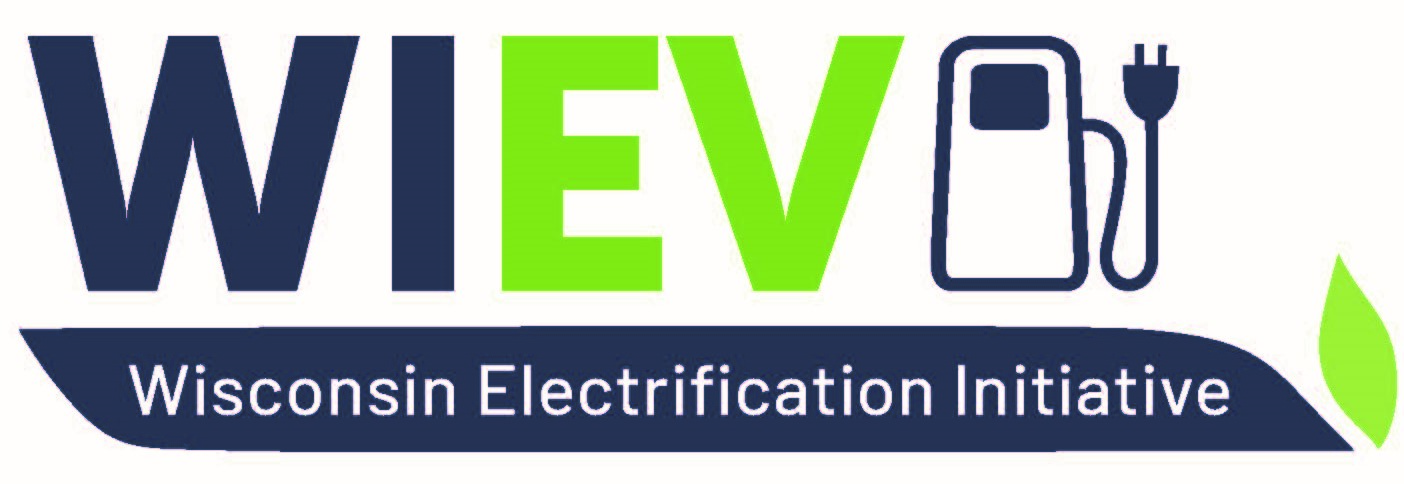 WisDOT's mission is to provide leadership in the development and operation of a safe and efficient transportation system. As Electric Vehicles continue to alter the status quo of the transportation system, WisDOT will continue to collaborate with the government, industry, and the public to create innovative transportation solutions that meet the needs of our state and contribute to the health and well-being of our communities.
WisDOT's mission is to provide leadership in the development and operation of a safe and efficient transportation system. As Electric Vehicles continue to alter the status quo of the transportation system, WisDOT will continue to collaborate with the government, industry, and the public to create innovative transportation solutions that meet the needs of our state and contribute to the health and well-being of our communities.
The Public Comment Period for the Wisconsin Electric Vehicle Charging Infrastructure Plan ran from July 14 - July 24. Updates will continue to be provided on the WisDOT Electrification Initiative homepage as they are available.
Read the
Wisconsin Electric Vehicle Charging Infrastructure Plan here.
Preventing Outages and Enhancing the Resilience of the Electric Grid Section 40101(d) Formula Grants to States & Indian Tribes
Under Section 40101(d) Formula Grant Program of the Bipartisan Infrastructure Law, the Department of Energy will provide grants to States (including U.S. Territories) and Indian Tribes to improve the resilience of their electric grids.
These grants offer a unique opportunity to advance the capabilities of States and Indian Tribes, and their communities, to address not only current but future resilience needs. Please be advised that eligible entities have until March 31, 2023, to apply.
Visit
National Energy Technology Laboratory for more information.
Biogas: Wisconsin utilities partner with farmers to replace fossil gas
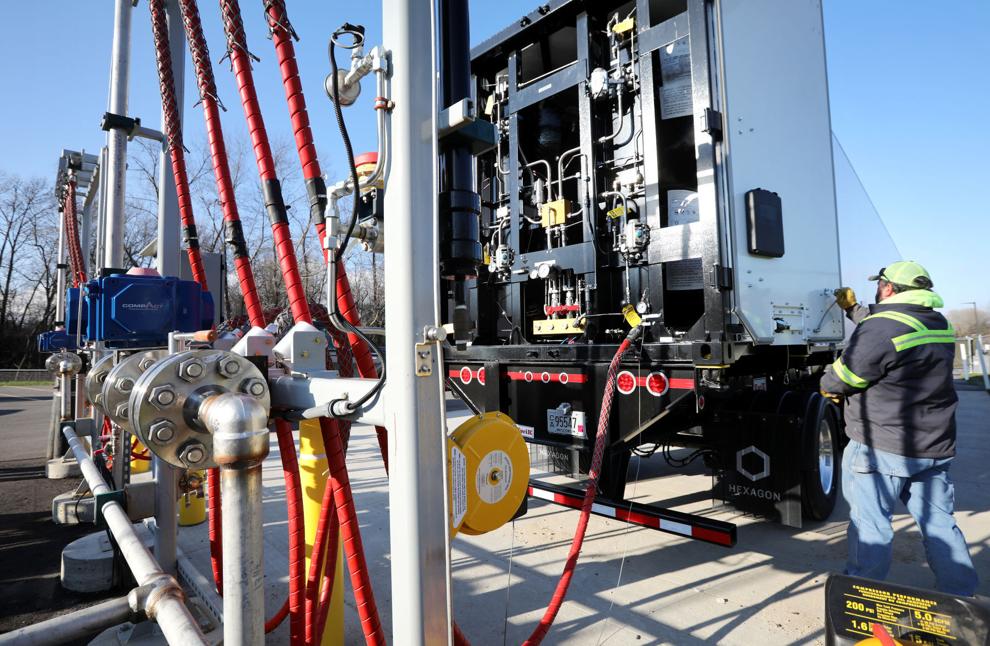 The Public Service Commission voted unanimously to approve WEC Energy Group’s $75 million pilot program intended to help its utilities meet their gas supply needs while reducing greenhouse gas emissions, providing farmers with a new revenue stream, and reducing the risk of groundwater contamination.
The Public Service Commission voted unanimously to approve WEC Energy Group’s $75 million pilot program intended to help its utilities meet their gas supply needs while reducing greenhouse gas emissions, providing farmers with a new revenue stream, and reducing the risk of groundwater contamination.
This new approach will allow digesters to hook up directly to the gas distribution network rather than having to haul pressurized gas to an interstate pipeline portal.
Read the
full article here.
Visit the
Biogas page for additional information.
Residential Cold Climate Heat Pump Challenge
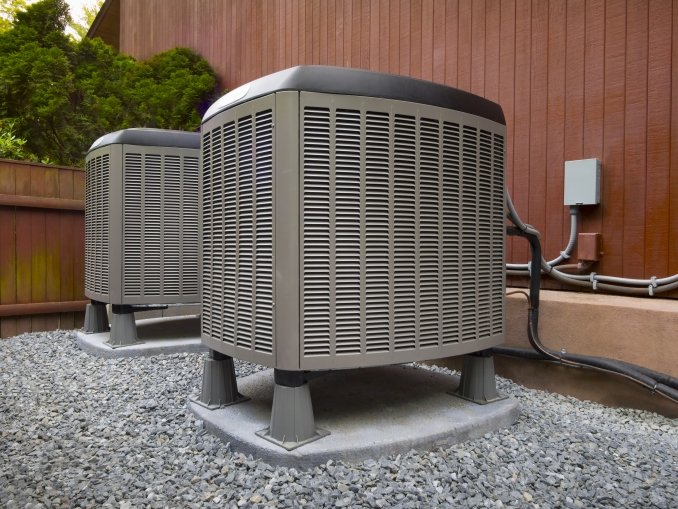 As part of the E3 Initiative, DOE is launching the Residential Cold Climate Heat Pump Technology Challenge to accelerate the deployment of cold climate heat pump (CCHP) technologies. In partnership with U.S. Environmental Protection Agency(EPA), Natural Resources Canada (NRCan), heat pump manufacturers and other stakeholders, DOE aim to develop a new technology specification for a high-performance CCHP that meets consumer needs, demonstrate the CCHP performance in the lab and pilot sites, and launch pilot programs with partners, such as utilities, to identify and alleviate installation challenges and accelerate adoption.
As part of the E3 Initiative, DOE is launching the Residential Cold Climate Heat Pump Technology Challenge to accelerate the deployment of cold climate heat pump (CCHP) technologies. In partnership with U.S. Environmental Protection Agency(EPA), Natural Resources Canada (NRCan), heat pump manufacturers and other stakeholders, DOE aim to develop a new technology specification for a high-performance CCHP that meets consumer needs, demonstrate the CCHP performance in the lab and pilot sites, and launch pilot programs with partners, such as utilities, to identify and alleviate installation challenges and accelerate adoption.
Read the
full article here.
Minnesota, Wisconsin, and Washington, D.C. Launch Innovative Partnerships to Tackle Affordability and Accessibility in Community Solar
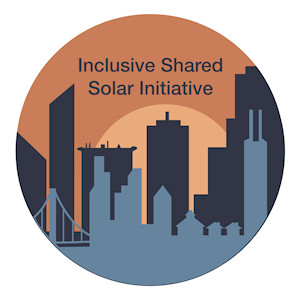 State Energy Offices and Low-Income Home Energy Assistance Program (LIHEAP) Agencies in Minnesota, Wisconsin, and Washington, D.C. have come together to enable more homeowners in their states to access and afford solar power – even if they cannot install solar panels in their homes.
State Energy Offices and Low-Income Home Energy Assistance Program (LIHEAP) Agencies in Minnesota, Wisconsin, and Washington, D.C. have come together to enable more homeowners in their states to access and afford solar power – even if they cannot install solar panels in their homes.
Through the Inclusive Shared Solar Initiative (ISSI), each state has formulated strategies that address this disparity by leveraging LIHEAP and other low-income programs to reduce the costs and barriers to investing and participating in community solar projects. Learn more about each state's plan to address affordability and accessibility in community solar by visiting NASEO Publications page.
Read the full
NASEO article here.
Milwaukee and Waukesha homeowners in financial need to benefit from Energy Innovation Grant Program (EIGP)
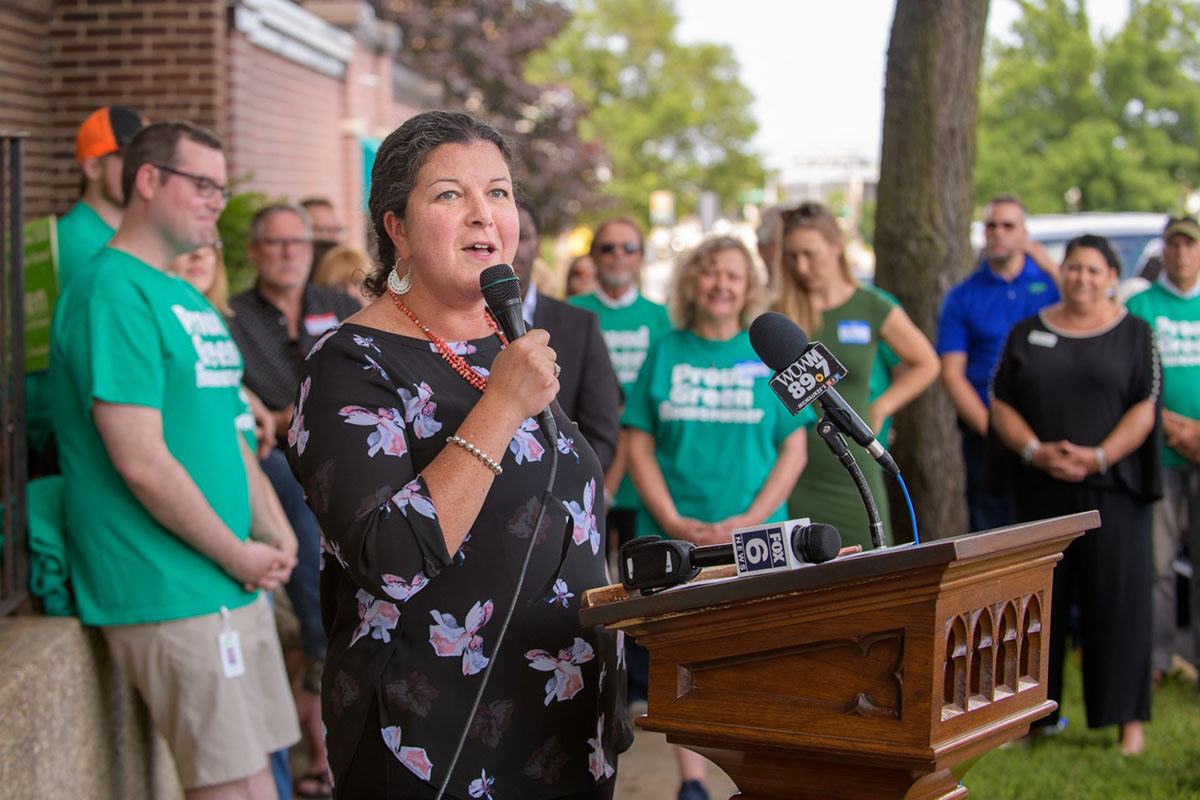 Fifty low-income homeowners in Milwaukee and Waukesha counties will get financial help to upgrade their living spaces to be more energy efficient, thanks to a half-million dollar innovation grant from the Public Service Commission of Wisconsin.
Fifty low-income homeowners in Milwaukee and Waukesha counties will get financial help to upgrade their living spaces to be more energy efficient, thanks to a half-million dollar innovation grant from the Public Service Commission of Wisconsin.
The $500,000 grant from the PSC will go to a partnership between the group Revitalize Milwaukee and the firm Green Homeowners United.
Read the full WUWM 89.7 FM article here.
Office of Energy Efficiency & Renewable Energy (EERE) Success Story – Wisconsin Invests DOE Funding in Innovative Energy Security Efforts
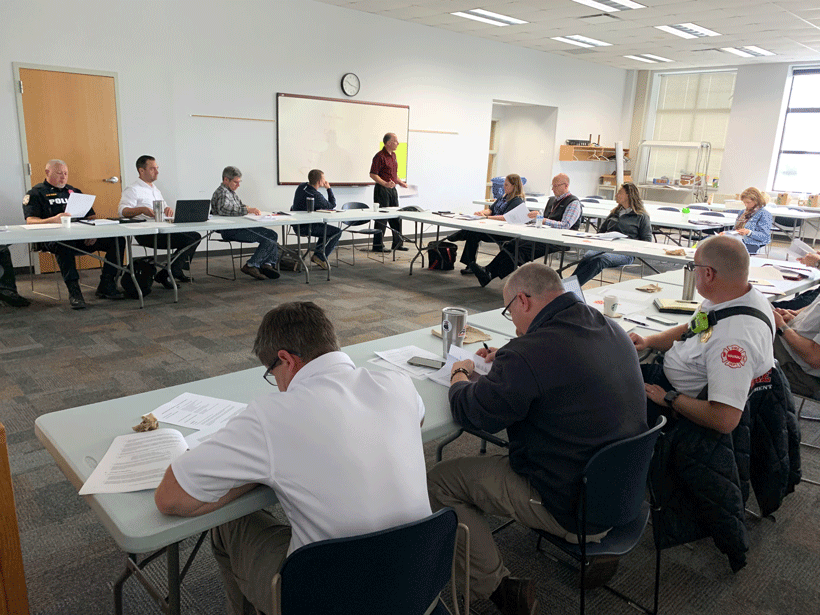 The PSC-OEI supported in part by funding from the U.S. Department of Energy (DOE), continues to make strides in enhancing energy security for local and tribal governments across the state with its Statewide Assistance for Energy Reliability and Resiliency (SAFER2) initiative.
The PSC-OEI supported in part by funding from the U.S. Department of Energy (DOE), continues to make strides in enhancing energy security for local and tribal governments across the state with its Statewide Assistance for Energy Reliability and Resiliency (SAFER2) initiative.
This project is supported by formula and competitive funding from DOE's State Energy Program (SEP), providing a great example of how a state energy office can employ both funding streams for a more significant impact.
OEI hosted the regional roundtables throughout the state in collaboration with Wisconsin Emergency Management (WEM) and Wisconsin Clean Cities, a coalition of public, private, and non-profit entities in the state that supports efforts to enhance energy and economic security.
Read the full
EERE article here.
Clean Energy Plan
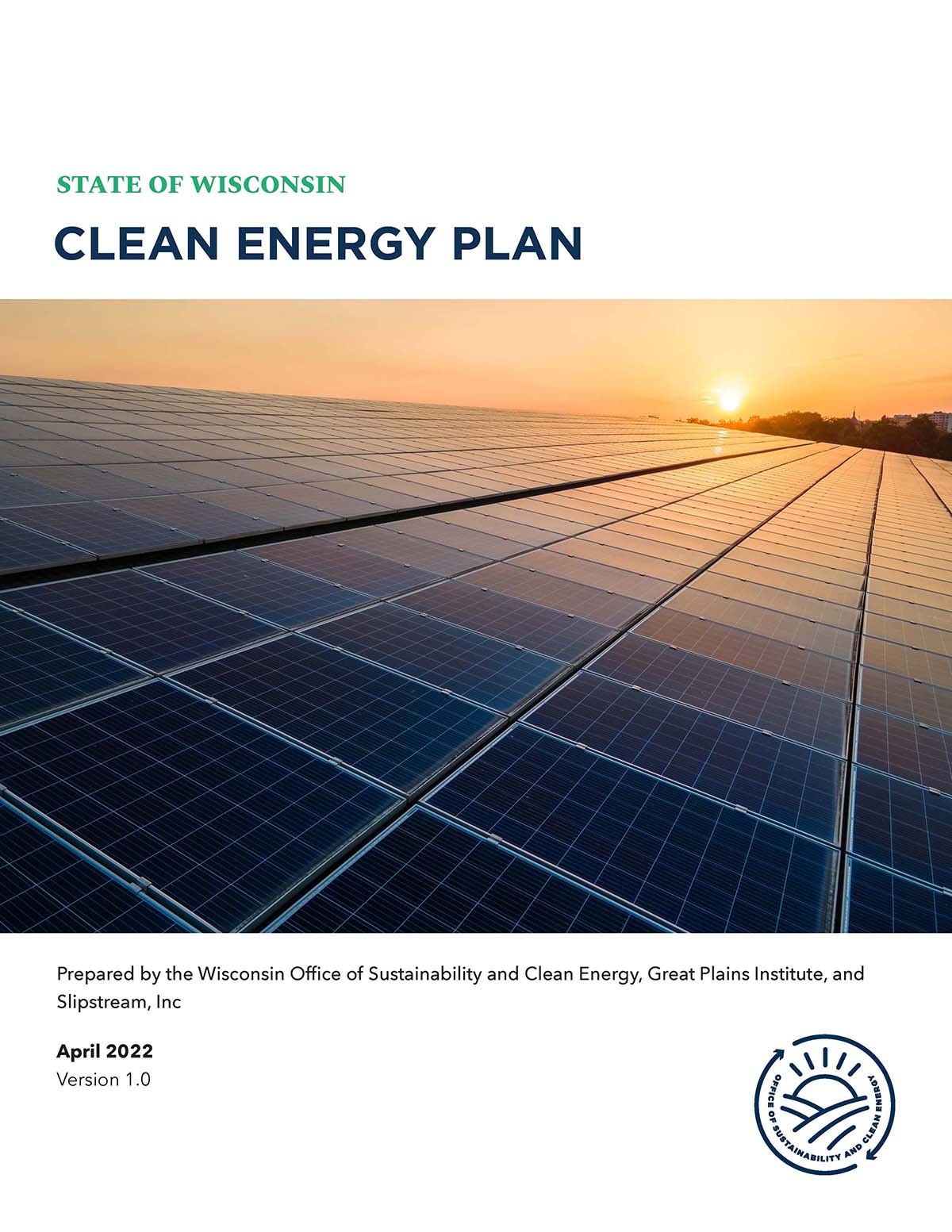 Governor Tony Evers, together with the
Office of Sustainability and Clean Energy, released the state’s Clean Energy Plan, the first-ever plan in the state’s history as the governor directed in
Executive Order #38.
Governor Tony Evers, together with the
Office of Sustainability and Clean Energy, released the state’s Clean Energy Plan, the first-ever plan in the state’s history as the governor directed in
Executive Order #38.
The Clean Energy Plan identifies dozens of paths and strategies aiming to lower energy bills and prices at the pump for Wisconsin families, promote energy independence by reducing reliance on out-of-state energy sources, create an estimated more than 40,000 jobs by 2030, and invest in job training and apprenticeship programs in innovative industries and technologies.
The plan incorporated thoughts, plans, and suggestions of people and entities throughout Wisconsin, including utilities, private industry, frontline communities, Tribal Nations, government partners, and academic experts, among others, to provide a framework to ensure Wisconsin can transition toward cheaper, cleaner energy.
Clean Energy Plan Report
Solympics: Summer Solar Makeathon 2021
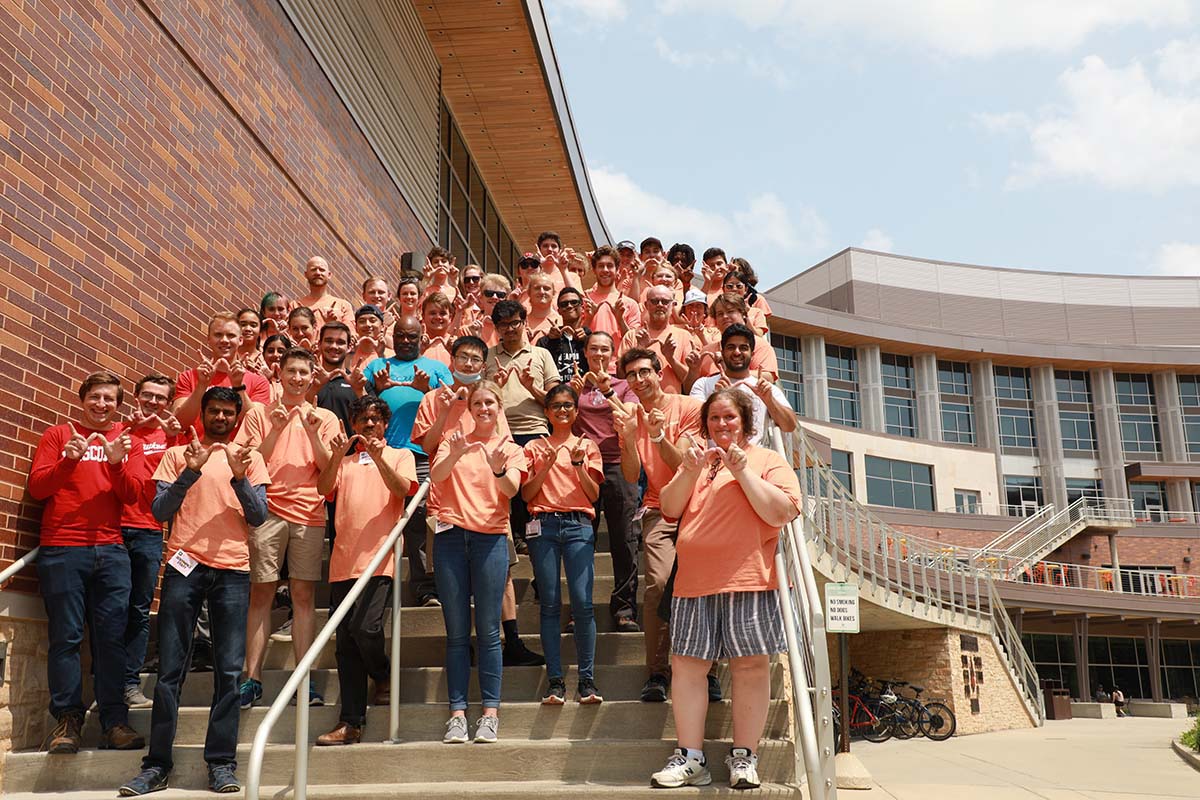 Wisconsin Office of Energy Innovation (OEI) co-sponsored Solympics: Summer Solar Makeathon 2021, a unique making experience at the UW Makerspace. In this hands-on design sprint, teams designed and built prototype mobile kiosks to charge phones and other devices using solar energy. The kiosks will benefit students of the
Great Lakes Community Conservation Corps in Racine, Wisconsin, by allowing them to charge their devices while participating in the organization's career training programs.
Wisconsin Office of Energy Innovation (OEI) co-sponsored Solympics: Summer Solar Makeathon 2021, a unique making experience at the UW Makerspace. In this hands-on design sprint, teams designed and built prototype mobile kiosks to charge phones and other devices using solar energy. The kiosks will benefit students of the
Great Lakes Community Conservation Corps in Racine, Wisconsin, by allowing them to charge their devices while participating in the organization's career training programs.
Wisconsin Biogas Feedstock and Industry Survey 2021
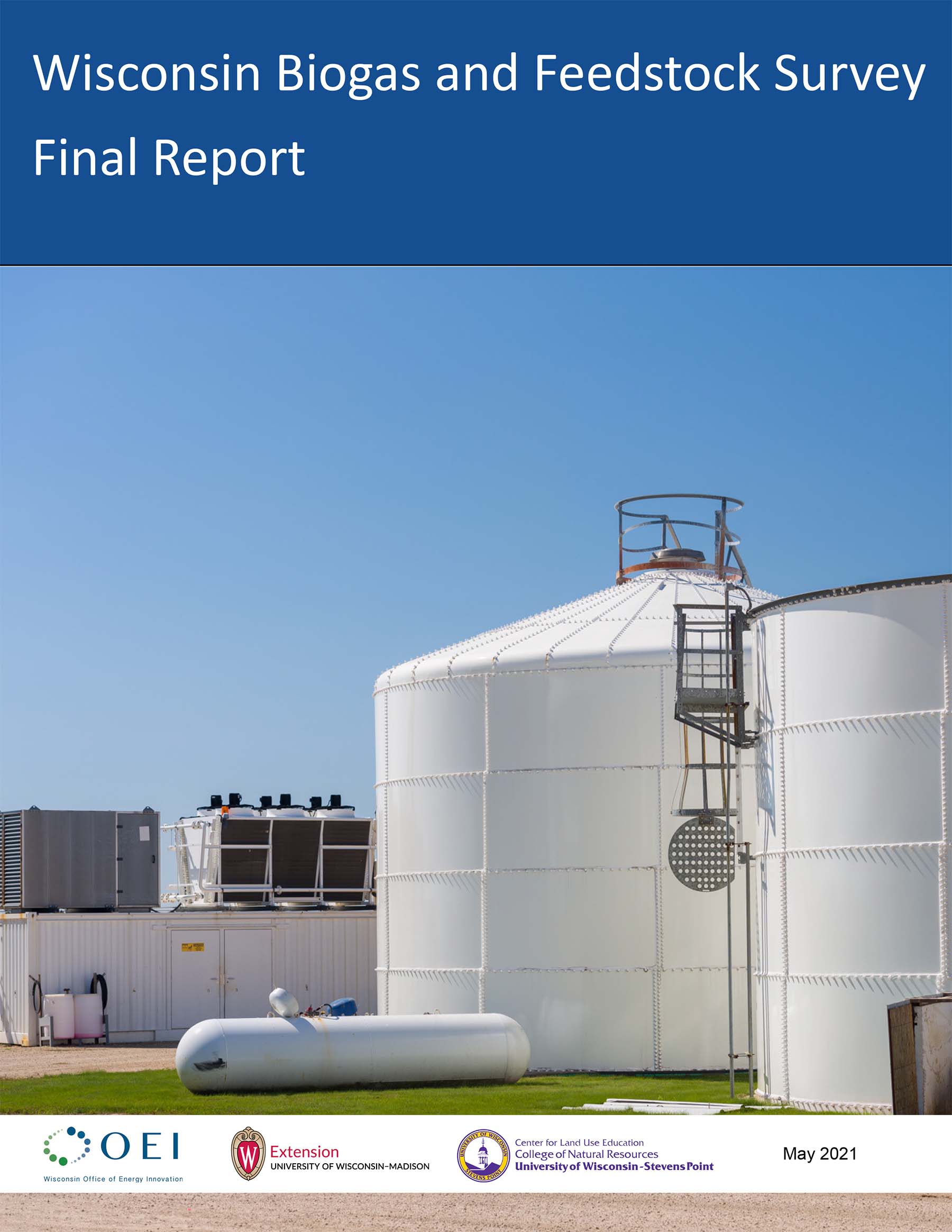 The Public Service Commission of Wisconsin - Office of Energy Innovation (OEI) and the University of Wisconsin - Stevens Point (UWSP) completed a statewide Biogas Feedstock and Industry Survey. The survey assessed the current status, challenges, and future opportunities of biogas facilities throughout Wisconsin.
The Public Service Commission of Wisconsin - Office of Energy Innovation (OEI) and the University of Wisconsin - Stevens Point (UWSP) completed a statewide Biogas Feedstock and Industry Survey. The survey assessed the current status, challenges, and future opportunities of biogas facilities throughout Wisconsin.
In partnership with both students and staff at UWSP, more than 300 Wisconsin facilities, including wastewater treatment facilities, landfills, industrial and food processing facilities, were asked to participate through electronic and mail survey submissions. This project serves as a follow-up to OEI's Biogas Survey Report conducted in 2015.
The link to the report is available below. Printed copies of the final report will be available upon request.
WI Biogas 2021 Report
Governor's Task Force on Climate Change Report
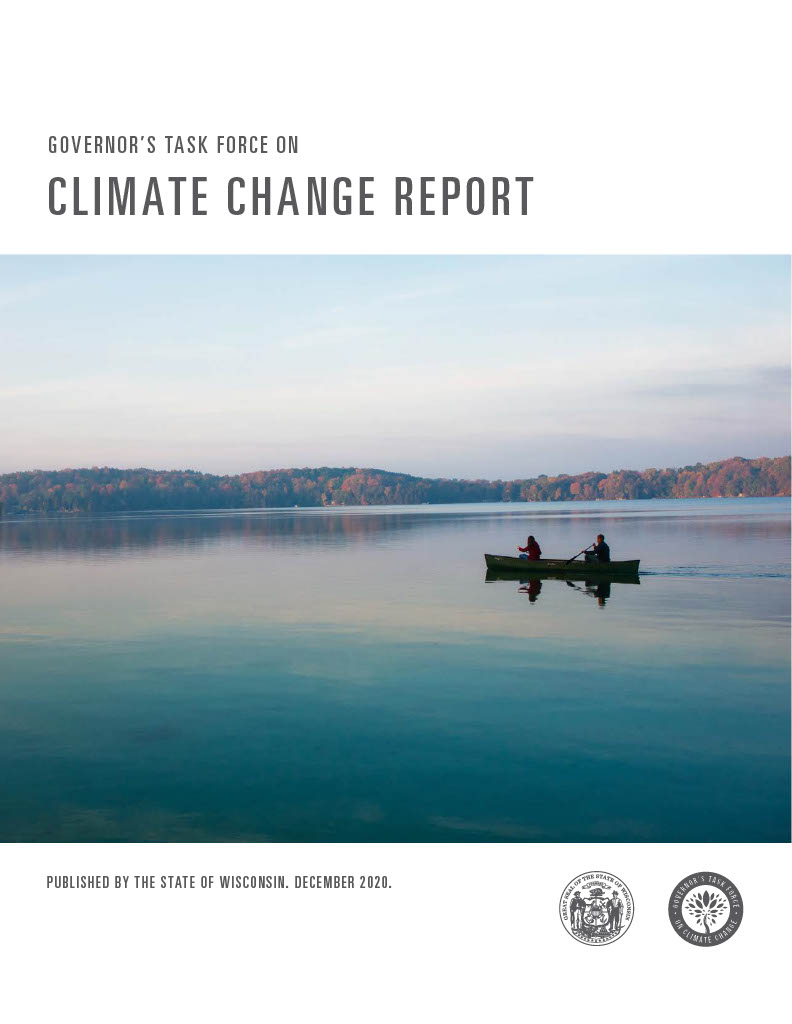 On December 9th, 2020, Lt. Gov. Mandela Barnes announced the release of the Governor’s Task Force on Climate Change Report. The report includes 55 climate solutions across 9 sectors that will lay the foundation for the state to better adapt to and mitigate the effects of climate change, while also seeking environmental justice and economic opportunities in renewable energy and conservation.
On December 9th, 2020, Lt. Gov. Mandela Barnes announced the release of the Governor’s Task Force on Climate Change Report. The report includes 55 climate solutions across 9 sectors that will lay the foundation for the state to better adapt to and mitigate the effects of climate change, while also seeking environmental justice and economic opportunities in renewable energy and conservation.
Full Report
Wisconsin Energy Statistics 41st-anniversary publication available
The 41st-anniversary edition of Wisconsin Energy Statistics is now available online and for order. Forty-one years of energy use, price, and expenditure data is available in full color from 1975 to 2017. Visit our
Wisconsin Energy Statistics page for more information. To order your copy, email
OEI@wisconsin.gov.
< OEI homepage